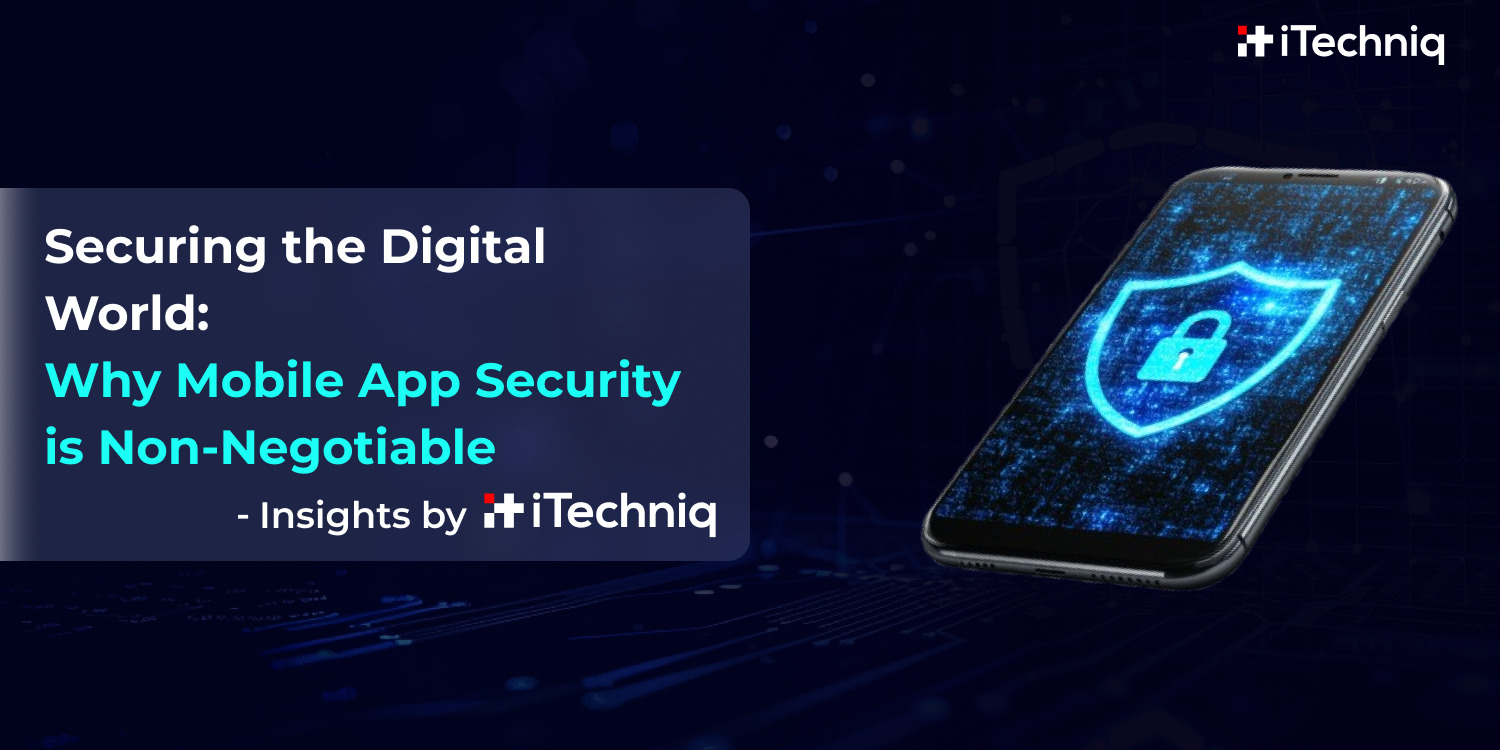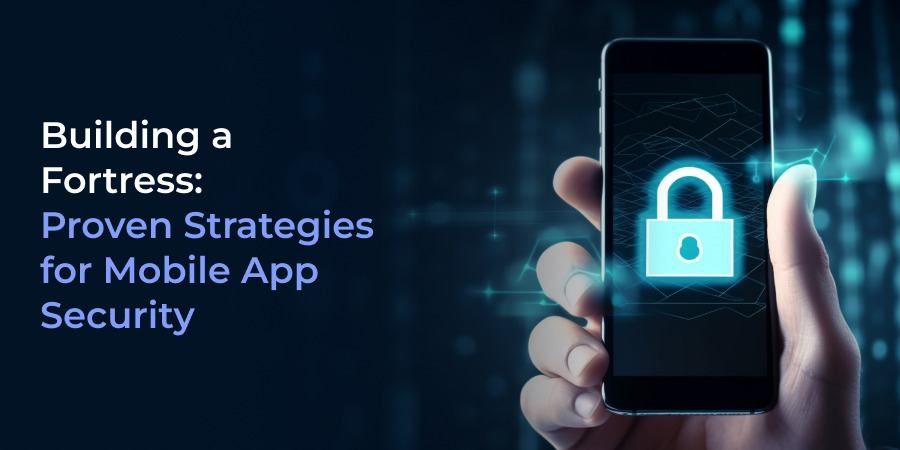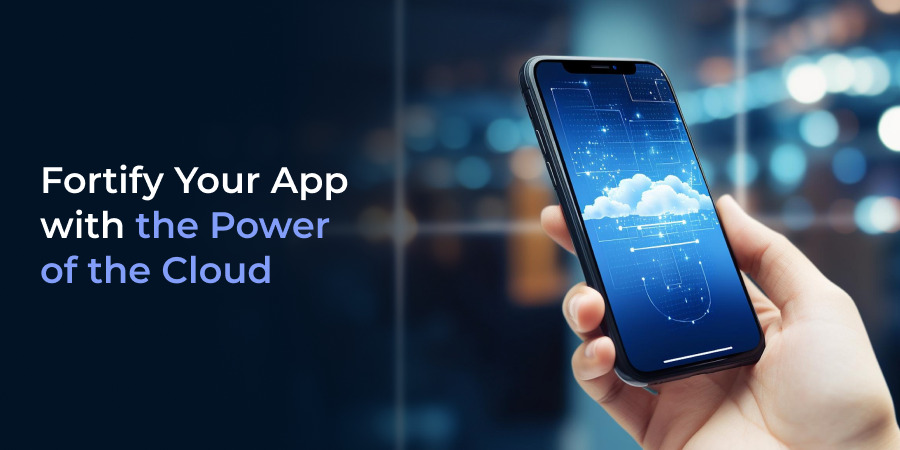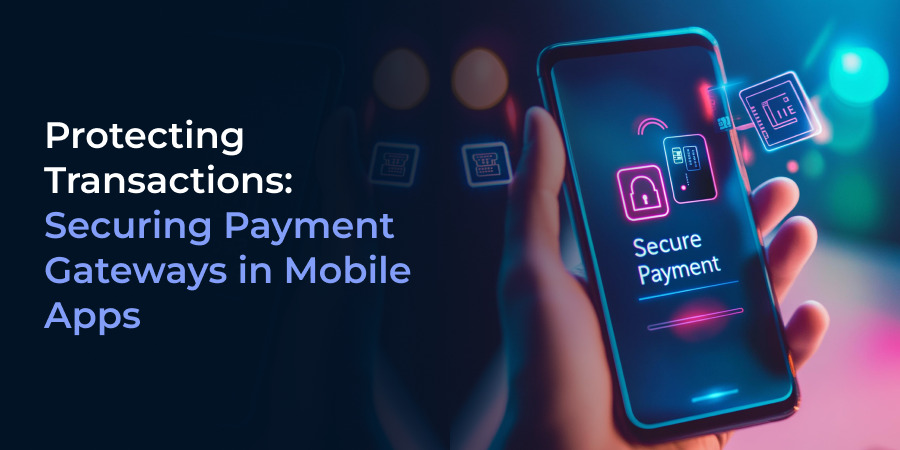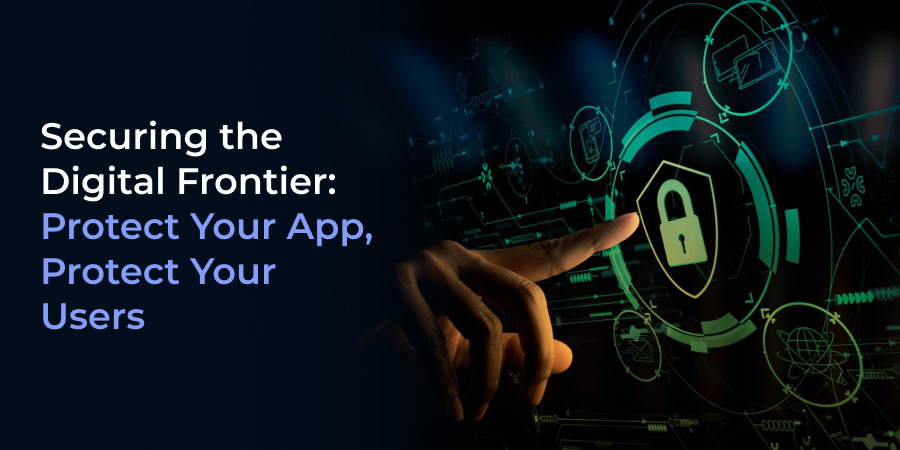Mobile applications have revolutionized the way we live, work, and interact. However, with increasing importance comes a greater need to safeguard the sensitive data that mobile applications hold. Whether personal information or financial records, users rely on apps to keep their data safe. This trust is why security is paramount for any mobile app development company. As threats evolve, it becomes imperative that your app employs strong data security and compliance audit services.
In this detailed guide, we will explore the strategies, tools, and technologies needed to protect user data in mobile applications. Whether you are a business looking for cloud infrastructure setup services or a developer creating secure apps, this blog equips you with the knowledge to stay ahead of potential threats.
Understanding the Mobile App Security Landscape
1. Rise in Data Breaches Threat
Every day, billions of transactions occur through mobile apps. So, when huge data exchange takes place between various devices, hackers have taken that as a challenge to crack up app vulnerabilities. It goes without saying that no ios app development company or an android app development company will remain indifferent to these risks.
2. Statistics That Represent The Problem
- By 2025, the global cost of data breaches is expected to exceed $10 trillion annually.
- The average cost of a data breach reached an all-time high in 2024 of $4.88 million, a 10% increase from 2023.
- 21% of Users Abandon an App After One Use.
These numbers underscore the urgent need for a proactive approach to app security.
Mobile App Security Threat Types
- Malware Attacks: Mobile applications are vulnerable to malware attacks that steal sensitive information or manipulate data. Such attacks can be prevented with the use of advanced software testing and QA techniques.
- Unsecured Networks: Apps that do not encrypt data during transfer are vulnerable to interception in public networks. Cloud infrastructure setup services can help prevent such risks.
- Lack of Authentication: Weak passwords and single-factor authentication are an open door for unauthorized access. Modern apps require multi-factor authentication and biometric features.
- No Regular Security Updates: Old apps are the goldmine for hackers. Continuous updates and data security and compliance audit services reduce the risk of exploitation.
- Unsecured APIs: APIs are usually used to integrate functionalities in an app. Without security, they can let hackers access sensitive data from your app.
Strategies for Secure Mobile Apps
1. Implement a Secure Development Lifecycle
Security must be applied from the first line of code. Proper practices at the development stage ensure security. The earlier vulnerabilities are caught, the less damage is done to your application. iTechniq, a top mobile app development company, is a security-first organization.
2. Regular Security Testing
Make friends with other testing and QA experts who ensure each nook and corner of the application is reviewed for bugs. Testing should not bypass these:
- Penetration Testing: Simulate attacks so as to determine vulnerable spots.
- Vulnerability Scanning: Active search of entry points that could be taken advantage of.
- Code Reviews: Confirm that the app code complies with security compliance
3. Encrypt User Data
Data in transit and at rest is encrypted. It means even if intercepted, the data cannot be accessed. This is a critical component of any app’s compliance audit services.
4. Implement Secure Cloud Infrastructure
Modern apps depend on cloud environments. They provide both scalability and security. Our cloud infrastructure setup services ensure that your data can be safely stored and processed on these platforms.
5. Implement MFA
Strengthen the security of logging in by forcing users to authenticate using more than one method. MFA will dramatically minimize risks of unauthenticated access.
6. Compliance Standards
Whether GDPR, HIPAA, or PCI DSS, compliance is proof of your app’s commitment to security. Data security and compliance audit services will always be useful in meeting the standards of these regulations globally.
Emerging Trends in Mobile App Security
1. Biometric Authentication
Fingerprint scanning and facial recognition have become the new normal for apps’ security. Both the iOS app development companies as well as Android app development companies integrate these technologies to meet the demands of users.
2. AI-Driven Threat Detection
Artificial Intelligence is changing the dynamics of mobile app security. Real-time detection and neutralization of threats are possible using AI-powered systems, hence an integral feature for every AI app development company in UK.
3. Blockchain Technology
Blockchain offers a decentralized means to secure the user data which is close to impossible to be manipulated by hackers to alter the information.
4. Zero-Trust Security Models
This approach ensures that none of the users, system, or devices is trusted by default, minimizing vulnerabilities at each level.
The Role of Compliance in Mobile App Security
1. Why Compliance Matters
Compliance frameworks are a benchmark for security. Adherence to the standards will show that your app has taken every measure to ensure protection of the user’s data.
2. How iTechniq Achieves Compliance
- Conducting thorough compliance audit services to find out and fix security gaps.
- Aligning the app development processes with international standards.
- Giving regular training to the developers so they are updated with the latest requirements of compliance.
Balancing Security with User Experience
1. The Paradox of User Experience in Security
One of the greatest challenges facing any mobile app development company is to balance the need for secure security with a seamless user experience. Overly complicated security measures can be frustrating, while overly lenient security leaves data vulnerable. Smart, user-friendly solutions lie in biometric authentication, encrypted data flows, and intuitive security prompts.
2. Best Practices for Positive UX without Compromise of Security
- Biometric Authentication: Provide fingerprint or facial recognition to the user as an alternative to passwords for ease and security.
- Invisible Encryption: Encrypt all data but do not overload users with technical jargon or visible encryption processes.
- Progressive Authentication: Enable the user to experience the app with minimal access first and progressively require authentication when sensitive features are explored.
- Proactive Alerts: In case of suspicious activities, notify the users, keeping alerts clear and actionable rather than alarming.
How Cloud Infrastructure Enhances Mobile App Security
1. Secure Storage and Operations
The use of cloud-based infrastructure has exponentially increased as it has inherent security benefits. Strong encryption, automatic backups, and real-time monitoring make cloud infrastructure setup services a cornerstone in the provision of app security.
2. Benefits of Cloud Platforms for Security
- Real-Time Monitoring: Instant detection of unauthorized activity.
- Disaster Recovery: Guarantees data integrity during cyberattacks.
- Data Redundancy: Prevents loss of data with multiple nodes.
- Better Scalability: Secure large amounts of data by automatically processes.
3. Compliance and Cloud
A proper cloud strategy assures compliance with global standards, including GDPR, HIPAA, and PCI DSS, thereby becoming a must in terms of data security and compliance audit services.
By 2025, 85% of businesses will run critical operations on the cloud, increasing the need for robust cloud infrastructure setup services.
AI and Machine Learning: Revolutionizing Mobile App Security
1. Rise of AI in Cyber Security
Cyber attacks have evolved to a new dimension where traditional security measures are getting out of date. AI and machine learning have been known to be game changers for proactive and adaptive security. Companies providing AI app development services in UK have taken this technology to predict and avoid threats.
2. AI-Based Security Features
- Behavioral Analysis: Catch abnormal user behavior that avoids fraud.
- Real-Time Threat Detection: Identify and neutralize potential vulnerabilities.
- Anomaly Detection: Recognize deviations from normal app behavior.
- Automated Incident Response: Respond to threats faster than manual methods.
3. Integrating AI with Security Frameworks
Collaborating with an AI app development company in UK ensures your mobile app not only meets current security standards but also anticipates future challenges.
Augmented Reality and Security: A Rising Issue
1. Security Threats in AR Applications
Innovative as AR apps are, they bring exclusive security challenges. As the best augmented reality app development company, iTechniq realizes the risks associated with:
- Geolocation Data: AR apps tend to record user geolocation, creating potential vulnerabilities for privacy breaches.
- Device Permissions: AR applications require the use of cameras and sensors, thereby increasing the attack surface.
- Spoofing and Manipulation: Cybercriminals can take advantage of the AR overlays to mislead users.
2. Best Practices in Securing AR Apps
- Use geolocation APIs that are encrypted.
- Utilize device-specific authentication protocols.
- Engage with third-party data security and compliance audit services experts for a full range of protection.
Mobile Applications in a Multi-Device Ecosystem
1. The Problem of Cross-Device Interaction
Mobile applications are not restricted to smartphones anymore. They can reach wearables, IoT devices, and even VR systems. This multi-device system is convenient but expands the attack surface manifold.
2. Techniques for Securing Cross-Device Interaction
- Token-Based Authentication: Safely identify users across multiple devices.
- End-to-End Encryption: Safeguard data in transit.
- IoT-Specific Protocols: Utilize IoT protocols designed for security.
3. Leveraging Expertise
Working with a virtual reality app development company or an augmented reality app development company ensures that your application is secure and extends seamlessly across devices.
Securing Payment Gateways in Mobile Apps
1. Why Payment Security is Important
E-commerce and subscription-based apps deal with sensitive financial information, making them a prime target for cyberattacks. A mobile app development company needs to prioritize secure payment integrations to protect user data and business reputation.
2. Key Security Features for Payment Gateways
- Tokenization: Replaces sensitive payment data with unique tokens.
- Secure Sockets Layer (SSL): Encrypts payment information during transmission.
- Multi-Factor Authentication: Adds an additional layer of security for transactions.
- Regular Vulnerability Scanning: Identifies and addresses weaknesses in advance.
3. PCI Compliance
Collaborate with compliance audit service providers to ensure your app’s payment gateway is PCI DSS compliant, thereby protecting your users’ transactions.
Mobile Application Security in Emerging Markets
1. Why Emerging Markets Need Advanced Security?
As digitization takes place at breakneck speed, emerging markets are turning into a breeding ground for cyber attacks. Businesses looking to penetrate such markets must ensure application security.
- Emerging Markets: Challenges
- Low Awareness: Customers do not identify phishing and malware attacks.
- Diverse Devices: An application must be safe to run on multiple devices.
- Poor Infrastructure: Security for an application on old networks can be tricky
2. Using Locally Relevant Solutions
A mobile app development company in UK with experience in global markets can tailor security solutions to address these challenges effectively.
Zero Trust Architecture in Mobile App Security
1. What is Zero Trust Security?
Zero Trust Architecture (ZTA) functions on the principle of “never trust, always verify.” In this concept, every user, device, and application accessing an application is stringently verified regardless of being inside or outside the network.
2. Key Features of Zero Trust in Mobile Apps
- Micro-Segmentation: It is an approach that isolates app components so that breaches can be contained.
- Granular Access Control: Allows users and devices to access only the required resources.
- Continuous Monitoring: Tracks user behavior in real time for timely threat detection.
- Multi-Factor Authentication: Enhances login security of app users.
3. Introducing Zero Trust in Mobile Applications
Cloud infrastructure setup services can be taken from experts while data security and compliance audit services can be taken from them to implement ZTA in mobile app architecture with ease.
Blockchain: A New Frontier for Mobile App Security
1. The Role of Blockchain in Mobile Apps
Blockchain technology is revolutionizing mobile app security by allowing for a decentralized and tamper-proof means of managing data.
2. Advantages of Blockchain in Mobile App Security
- Immutable Data: Prevents unauthorized modification of the app’s data.
- Decentralized Storage: Lowers the risk associated with central data breaches.
- Transparent Transactions: Tracks all activities by the user and applications, promoting accountability.
3. Use Cases in App Security
- Payment Security: Secure in-app transactions without intermediaries.
- Identity Verification: Secure digital identity management.
- Supply Chain Security: Tracks assets for apps that are logistics and e-commerce.
4. Why Blockchain Matters
Being a top AI app development company in UK, iTechniq is exploring blockchain integrations to enhance app security and scalability.
Role of Penetration Testing in App Security
1. What is Penetration Testing?
Penetration testing or pen testing is a simulated cyber attack used to evaluate the vulnerabilities in a mobile application. It’s a significant process to ensure security measures.
2. Why Penetration Testing?
- Proactive Threat Detection: detects threats before they can be utilized by attackers.
- Compliance: ensures compliance through services in audit compliance.
- Improves App Reliability: secures the app from the vulnerabilities that may trigger while under various conditions.
3. Best Practices in Penetration Testing
- Perform regular pen testing for major app updates.
- Use advanced tools provided by software testing and QA teams.
- Document and address vulnerabilities promptly.
Regulations and Certifications for Mobile App Security
1. Why Certifications Matter
Certifications prove that your app complies with international security standards, thus gaining the trust of users and protecting your business.
2. Important Certifications for Mobile Apps
- ISO 27001: Information security management.
- SOC 2: Data protection for SaaS and cloud-based apps.
- GDPR Compliance: For apps targeting EU users.
- HIPAA Compliance: For healthcare-related apps.
3. How to Obtain Certification
Certification would become less complicated with help from a mobile app development company as well as experts in data security and compliance audit services.
Safekeeping Against Insider Threats
1. Risk of Insider Threat
Not all security risks originated outside. Users’ data and information could be at jeopardy due to insider threats-that are malicious or accidental insider risks.
- Role-Based Access Control: Inhibit sensitive data based on job role.
- Employee training: Employee education about existing security protocol..
- Activity tracking: Use the tools for watching and marking suspicious activities
2. Why does it matter
As an iOS app development company and Android app development company, iTechniq recognizes the importance of minimizing insider risks through secure coding practices and regular audits.
The Future of Biometric Authentication
1. Trends in Biometric Security
Biometric authentication through fingerprint and facial recognition has become the new norm in mobile app security.
2. Next Generation Biometric Solutions
- Behavioral Biometrics: authenticates users based on their behavioral pattern like typing or swipe gestures.
- Voice Recognition: hands-free and secure login.
- Iris Scanning: offers an additional layer of precision in sensitive applications
3. Incorporating Biometrics with Compliance
Ensure that biometric data collection adheres to global standards through compliance audit services for optimal security.
Security for Progressive Web Apps (PWAs)
1. Distinct PWAs Challenges
PWAs work across devices, taking the good from websites and mobile applications. This hybrid model introduces some unique security challenges: caching data and cross-site scripting.
2. Stronger PWA Security
- HTTPS protocols: Ensure all connections are over HTTPS.
- Service worker limitations: Limit permissions to not allow unauthorized access.
- Content Security Policy (CSP): Prevent XSS attacks.
3. Role of a Trusted Partner
A leading mobile app development company can ensure that your PWA meets security standards while delivering a seamless experience.
Cybersecurity Training for App Developers
1. Why Training Matters
Developers are the first line of defense in mobile app security. Proper cybersecurity training equips them to implement and maintain strong security protocols.
2. Key Topics in Developer Training
- Secure Coding Practices: Preventing vulnerabilities in the codebase.
- Threat Modeling: Anticipating possible security risks during development.
- Data Encryption Techniques: Safeguarding data storage and transmission.
3. Enhance Security with QA Support
Involvement of software testing and QA personnel in the development lifecycle always strengthens security at every development stage.
Secure APIs: The Backbone of Mobile App Communication
1. Why API Security is so Important
APIs permit apps to communicate with remote servers and other applications, but insecure APIs can endanger sensitive user data.
2. Secure API Best Practices
- OAuth 2.0 Authentication: Inter-app and inter-server, secure communication.
- Rate Limiting: Denial of service (DoS).
- Input Validation: Only legitimate inputs are allowed in the system.
3. Expert API Integration
Collaborating with a trusted mobile app development company ensures API security is prioritized, safeguarding user interactions.
Artificial Intelligence in Security
1. AI as a Security Tool
AI is transforming mobile app security by automating the detection and response of threats.
2. How AI Improves Security
- Behavioral Analysis: Tracks unusual patterns of app usage to flag potential breaches.
- Real-Time Threat Detection: Identifies and mitigates attacks before they escalate.
- Fraud Prevention: Recognizes anomalies in transactions for financial apps.
3. Leverage AI Expertise
An AI app development company in UK like iTechniq can integrate intelligent security measures into your mobile app, ensuring state-of-the-art protection.
The Role of DevOps in Mobile App Security
1. What is DevOps?
DevOps integrates security practices into the DevOps lifecycle, ensuring that security is considered at every stage of app development.
2. Advantages of DevOps
- Proactive Security: Identifies vulnerabilities early in development.
- Faster Response Time: Automates patching and updates.
- Cost Efficiency: Saves the cost of repairing problems after launching.
3. Development by DevOps
Companies ensure that the development process has a smooth and secure process by using software testing and QA.
The Cost of Ignoring Mobile App Security
- Monetary Loss: Data breaches, therefore, cause massive loses in terms of fines, fees for lawyers, and loss in customer confidence.
- Damage Reputation: One breach is enough for a brand to lose credibility and never regain the consumer’s trust.
- Mitigation Strategies: Investing in data security and compliance audit services and collaborating with a mobile app development company assures that the security measures are up to the mark to avoid costly breaches.
78% of consumers avoid apps that have experienced data breaches
Security for IoT-Enabled Mobile Apps
1. IoT Security Risks
IoT-enabled apps interact with multiple devices, making it easier for cyber threats such as device spoofing and network breaches to occur.
2. IoT Security Best Practices
- Secure Communication Protocols: Encrypt data between devices.
- Device Authentication: Only trusted devices should be allowed to connect to the app.
- Firmware updates: Update IoT devices, fixing vulnerabilities
3. IoT Expertise Matters
Being partnered with a credible company of Android app development company or iOS app development, it ensures that the android enabled IoT application is going to be developed based on the security framework.
Develop Robust Mobile Applications for Next Generation
1. Prepare Against Emerging Next Threats
Digital is change and new threats arise constantly so, developing robust apps involves some advanced planning and watch in future.
2. Future-proofing strategies
- Regular Updates: There are continuous updates on such applications to prevent newer vulnerable issues.
- AI-Powered Security: Use AI for predictive threat detection.
- User Education: Educate users on safe application usage and updates.
3. Staying Ahead with Expert Support
Be it cloud infrastructure set up services or compliance audit services, iTechniq’s team ensures that the application stays secure in an ever-changing environment.
Securing the Digital Frontier
Mobile app security is no longer optional; it’s a necessity in today’s digital world. From encryption to compliance, from integrating AI and DevOps, every step you take reinforces trust and reliability in your app.
The best thing is partnering with experts who can services for data security and compliance audits services, software testing and QA, and cloud infrastructure setup. Such a 360-degree approach ensures complete security. Our motto at iTechniq, the top mobile app development company, is ensuring businesses safeguard the users’ data and providing outstanding user experience.
Your application security lays down its success base. So let us create it.
Get in touch with us!
Post Views: 126
